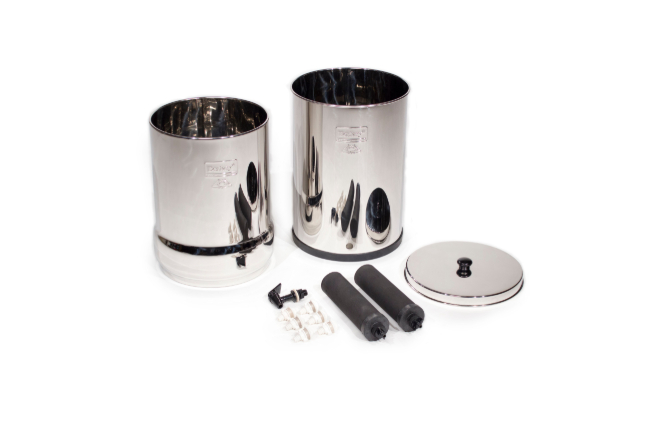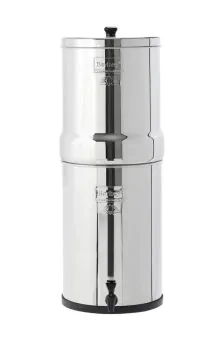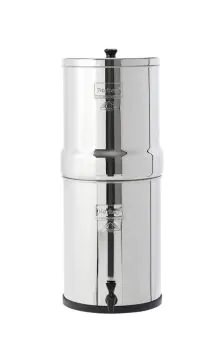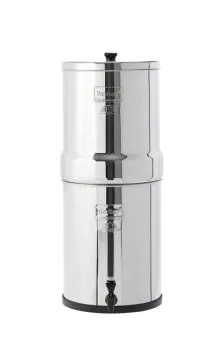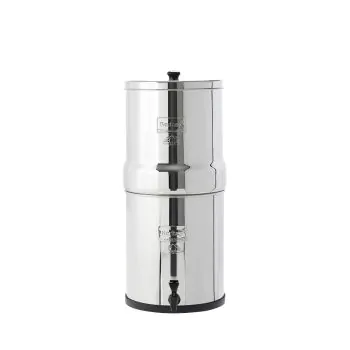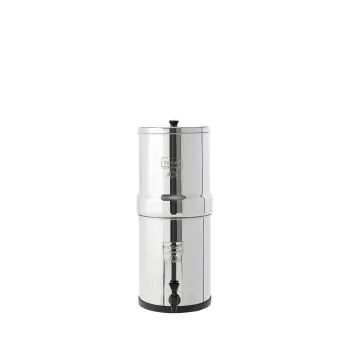As drinking water can contain a wide range of contaminants, many of which can be harmful to human health, it is advisable to filter water to ensure you are consuming clean drinking water. The type of contaminants a filter is capable of removing will vary widely depending on the type and quality of the filter used.
Water filters typically remove pathogenic bacteria commonly found in water such as E.coli, as well as other unwanted components such as heavy metals and toxic chemicals. One drawback of water filtration is that depending on the type of filtration method used, filtering water can also remove beneficial minerals that the body needs to maintain good overall health.
There are various water filtration systems available on the market, and they have different capabilities for removing minerals. The mineral removal properties of different types of filters are outlined below.
Do Reverse Osmosis (RO) Water Filters Remove Minerals from Water?
Reverse osmosis (RO) filtration is extremely effective at removing minerals from water. Reverse osmosis filtration uses a semipermeable membrane to separate impurities from the water, including minerals. This process can remove a wide range of minerals such as calcium, magnesium, sodium, and potassium, along with many other contaminants. While some minerals such as calcium and magnesium can make water hard, they are also beneficial to human health. Minerals also give water its taste, and when no minerals are present water can taste rather bland.
Because reverse osmosis systems remove healthy minerals, RO water is typically low in mineral content. If you are drinking RO water and prefer to have some minerals in your drinking water for taste or for the potential health benefits they offer, you may want to consider adding a mineralization step to add essential minerals or using a different type of water filtration system that retains more minerals.
Does Distillation Remove Minerals in Tap Water?
Distillation is a water purification process that involves heating water to create steam, which is then condensed back into liquid form. During this process, impurities, including minerals, are left behind, resulting in highly purified water. Since all the minerals are stripped from the water during this process, distilled water contains very low levels of minerals and is considered one of the purest forms of water available.
While pure water may be beneficial for applications where minimal mineral content is desired, such as laboratory, medical, or pharmaceutical uses, drinking distilled water over an extended period is not recommended as it does not provide healthy minerals like calcium and magnesium. If you consume distilled water regularly, it's essential to ensure that you obtain the necessary minerals from the food you eat or through mineral supplements.
Want to know more? Here is an article about what is distilled water and whether can you drink it.
Do Ion Exchange Water Filters Remove Good Minerals from Water
Ion exchange filtration is commonly used to treat hard water. The process employs resin beads to replace unwanted minerals such as calcium and magnesium, which contribute to hardness, with ions such as sodium or potassium. Ion exchange water filters remove healthy minerals from water.
While ion exchange water treatment is effective at removing calcium and magnesium ions, it does not remove all minerals in the water. They primarily target the minerals responsible for water hardness, which are the ones that can cause scaling in pipes and appliances. Unfortunately, these also happen to be the beneficial minerals that our bodies need. If you're concerned about other types of minerals or want to remove harmful contaminants in your drinking water, you may need additional filtration or treatment methods tailored to your specific water quality issues.
Do Activated Carbon Filtration Systems Remove Essential Minerals like Calcium from Drinking Water?
Activated carbon filters like those found in Berkey water filtration systems are primarily designed to remove organic compounds, heavy metals, chemicals, and other contaminants from water. These filters don't remove healthy minerals in water. While they may not target the minerals in your water directly, they can help improve the taste and odor of water, which can be affected by certain minerals.
Activated carbon filters work by adsorbing impurities that are attracted to carbon and bind to the filter’s porous surface. A Berkey water filter system fitted with high-quality Black Berkey filtration elements is able to remove over 200 common drinking water contaminants, including:
- Chlorine and Chloramines: Activated carbon is excellent at removing chlorine and chloramine disinfectants commonly found in tap water. This helps improve the taste and odor of tap water and offers protection against the health risks associated with exposure to these disinfectants and their byproducts.
- Volatile Organic Compounds (VOCs): Black Berkey purification elements are able to remove a wide range of VOCs such as benzene, toluene, and harmful pesticides such as dieldrin to below detectable lab limits.
- Heavy Metals: Activated carbon filters can reduce the presence of certain heavy metals like lead and mercury, but their effectiveness varies depending on the quality of the filters. The Black Berkey filters are capable of removing 99.9% of harmful heavy metals such as lead, mercury, chromium-6, and others.
- Pharmaceuticals: Black Berkey carbon filter elements are able to remove 99.5% of pharmaceuticals such as bisphenol-A, ibuprofen, diclofenac, triclosan, and more.
Want to know more? Check more about what contaminants a Berkey Water Filter Removes!
Berkey Water Filters
While activated carbon water filters remove harmful contaminants such as chlorine and heavy metals, they are not efficient at removing dissolved minerals such as calcium, magnesium, potassium, and sodium from water. These minerals typically remain in the water after passing through an activated carbon filter.
While this means you don’t have to add any minerals to the water or take supplements to get the minerals your body needs, if you need to address the high mineral content in your water that is causing scaling issues, you may also want to use a water softener, which is designed specifically to reduce minerals such as calcium and magnesium.
Things to Consider When Choosing the Type of Water Filtration Best Suited to Your Needs
It's important to note that not all minerals are harmful or undesirable in drinking water. Some minerals, like calcium and magnesium, are considered essential for health and can contribute to water hardness.
As minerals are essential to our health, the decision to remove minerals from the water should be based on factors such as the local water quality, individual preferences, and health considerations. In cases where minerals are removed, you need to ensure that the resulting water is safe and that any potential loss of essential minerals is addressed through diet or supplementation if necessary to ensure you get the healthy minerals that your body needs.

